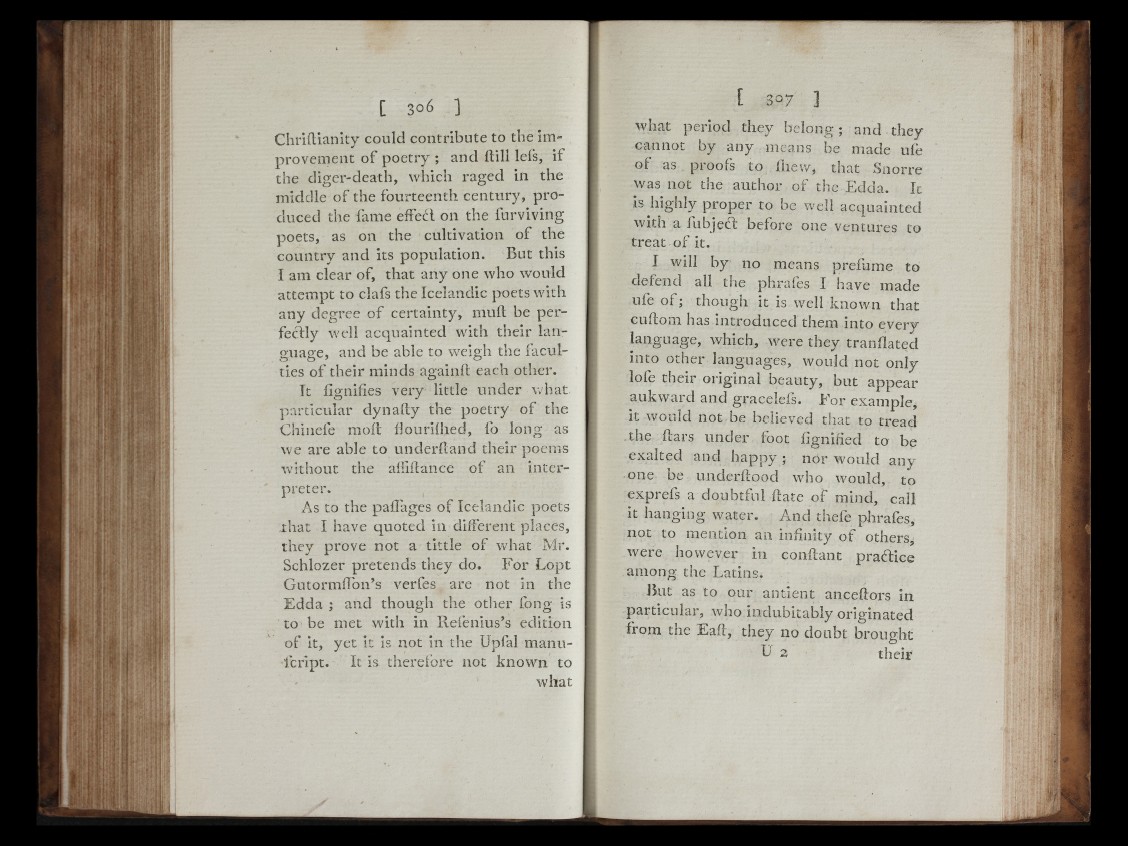
Ml
I if A
■I
p-
1 .
( I H
Chrillianlty could contribute to tbe Improvement
of poetry ; and ilill leife if
the diger-death, which raged in the
middle of the fourteenth century, produced
the fame efiefl on the furviving
poets, as on the cultivation of the
country and its population. But this
I am clear of, that any one who would
attempt to clafs the Icelandic poets with
any degree of certainty, muft be pcr-
feflly well acquainted with their language,
and be able to weigh the faculties
o f their minds againft each otlier.
Tt iignifies very little under what
particular dynafty the poetry o f the
Chinefe moil ilouriOied, fo long as
we are able to underftand their poems
wdthout the aififtance o f an interpreter.
As to the pailages of Icelandic poets
ihat I have quoted in different places,
they prove not a tittle o f what Mr.
Schlozer pretends they do. For Lopt
Gutormflbn^s verfes are not in the
Edda ; and though the otlier fong is
to be met with in Refenius’s edition
of it, yet it Is not in the Upfal manufcript.
It is therefore not known to
what
what period they belong; and they
cannot by any means be made ufe
o f as proofs to iliew, that Snorre
was not the author o f the Edda. it
is highly proper to be well acquainted
with a fubjecl before one ventures to
treat of it.
I will by no means preilime to
defend all tlie phrafes I have made
ufe of; though it is well known that
cuftom has introduced them into every
language, which, Avere they tranilated
into other languages, would not only
lofe their original beauty, but appear
aukward and gracelefs. For example,
it would not be believed that to tread
the flars under foot iignifiecl to be
exalted and happy ; nor would any
one be underftood who would, to
exprefs a doubti'ul ftate o f mind, call
it hanging water. And thefe phrafes,
not to mention an infinity o f others,
were however in conilant prablice
among the Latins,
Jhat as to our antient anceilors in
particular, who indubitably originated
from the Eaft, they no doubt brought
U 2 their
I
fo